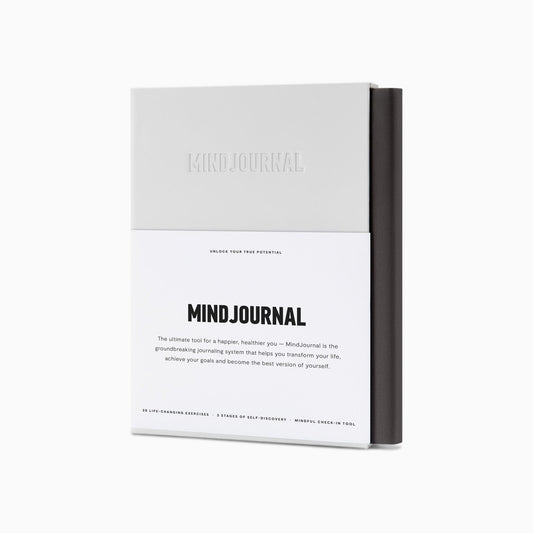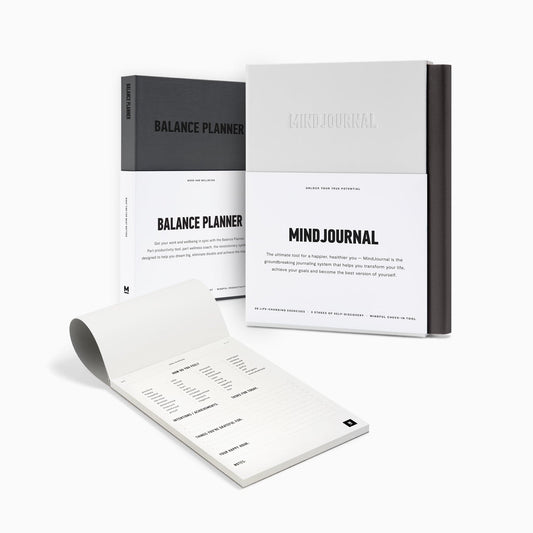Start your journey
Browse our bestsellers for a better you.
Frequently added:




by Tom Ward – 6 min read

As anyone living with a mental health condition knows, your mind can be a truly difficult and frustrating place at times. Give your head control, and you can quickly end up in some really dark places.
As a child, I'd torture myself over the most mundane things. Things that, looking back, would seem comical if I didn't remember how bad I felt at the time. As an adult, I still struggle, but the good news is there are ways of dealing with OCD, and by doing so, your mind doesn't have to be something you fear.
The first thing to remember is that OCD is more common than you might realise. According to OCD UK, three-quarters of a million people (that's around 750,000) are living with OCD in the UK right now.
"What we know about OCD is that the condition affects as many as 12 in every 1,000 people (1.2% of the population) from young children to adults, regardless of gender, social or cultural background," the charity says.
It goes on to explain that while instances of OCD are relatively even across genders, men are more likely to develop it in late adolescence while women are more likely to develop it in their early twenties. But it can be different for everyone.
"Instead of thinking I was cracking up, I understood I was struggling with OCD, and that I could overcome it."
Tom Ward
In my case, I struggled with OCD from childhood into my early teens, then felt okay for a while until stresses in my late twenties and early thirties sparked a resurgence of these old patterns of thinking.
I didn't speak to a therapist as a child, but I did (and do) as an adult. Being told I had OCD was a lightbulb moment; instead of being afraid, I felt relieved to be diagnosed with an actual condition. Instead of thinking I was cracking up, I understood I was struggling with OCD, and that I could overcome it.
But what exactly is OCD?
I've always been a worrier, and in its simplest terms, Obsessive Compulsive Disorder is a condition defined by worry. You worry about X, you worry about Y, and you hope that by endlessly thinking through a fear or carrying out a physical action over and over again, you can solve it.
Mind, the mental health charity, defines OCD as having two main parts: obsessions and compulsions.
"Obsessions are unwelcome thoughts, images, urges, worries or doubts that repeatedly appear in your mind. They can make you feel very anxious (although some people describe it as 'mental discomfort' rather than anxiety.)
"Compulsions are repetitive activities that you do to reduce the anxiety caused by the obsession. It could be something like repeatedly checking a door is locked, repeating a specific phrase in your head or checking how your body feels."
So, some people might have the obsessive fear of burning the house down and develop the compulsion to check the gas every time they leave the house. Some people, like me, have an obsessive fear about what the future might hold and thereby develop the compulsion to overthink different scenarios in their head.
The World Health Organisation ranks OCD as one of the ten most debilitating conditions in the world. At the same time, Mind explains that it can disrupt your everyday life, your career and make you feel ashamed or anxious.
In many cases — and certainly my own — people with OCD worry because we can't handle uncertainty. We want to be certain that the house won't burn down while we're out. We want to be certain that we won't feel daft or unwanted when we go to the pub with new people or put forward an idea in a work meeting.
"Part of overcoming your own mind is trying to build mental resilience, a sense that you can trust your own head."
Tom Ward
The problem is that all of this worrying, all of this checking and rumination, just makes the condition worse. The good news is that, like many mental health conditions, OCD isn't a life sentence.
"It's important to respect and try to understand it, but OCD is not to be feared," explains Floss Knight, a psychotherapist and founder of the UK Therapy Guide. "The great news is that if the mind can create a matrix like OCD, you can trust it holds the resilience to escape the shackle it creates. We now know so much more about OCD and various mechanisms of how to tackle such manifestations."
Part of overcoming your own mind is trying to build mental resilience, a sense that you can trust your own head.
Instead of saying 'I have OCD', I now tell myself, 'I have OCD tendencies'. The distinction is huge. In the first case, OCD is something I have that I'll never be able to get rid of, like the need to breathe oxygen. In the second – more accurate – case, OCD is a thinking pattern I developed to deal with difficult situations. Over time, this became harmful, and now I'm working to ignore it. Like a fire starved of oxygen, if you stop feeding OCD by responding to your worried thoughts, its power will diminish.
On a good day I can often recognise when my mind is slipping back into these old patterns. For the most part, I no longer believe everything my brain tells me about myself as the truth, which gives me options in how I want to respond.
"The mind's adaptability and creation of coping mechanisms to protect and shelter emotional turbulence is quite remarkable. Equally, when one recognises that such strategies have become dysfunctional, this same elasticity means that a change in focus and recovery is possible," adds Knight. "OCD is by no means permanent, and with the right help and guidance, intrusive thoughts and habits can be placed to the back of the mind."
For me, overcoming OCD has been a long (and ongoing) process. Still, the difference between writing this and where I was a few years ago is worlds apart. Speaking to friends was a huge step (I never realised how many of them also struggled with OCD tendencies). CBT-based therapy has been a great way of opening up and changing my perspective around thoughts, as has getting into mindfulness as a way of quieting the mind.
Things like journaling, getting out of the house, exercising, eating well and – crucially – not being so hard on yourself will all make a huge difference too.
If you're struggling, remember that not everything your mind thinks is true. Not every thought is a huge problem to be overcome. You aren't alone. And by allowing yourself the space and rest to calm your mind, you will be able to get some distance from your thoughts and start to recognise that thoughts are only thoughts. In other words: OCD needn't dictate your life.
Overcoming OCD is about trusting yourself instead of engaging with the passing stories in your mind. You can do this, you are loveable, you do have something to offer. Here, Knight outlines your plan of attack.
Good luck, you've got this.
